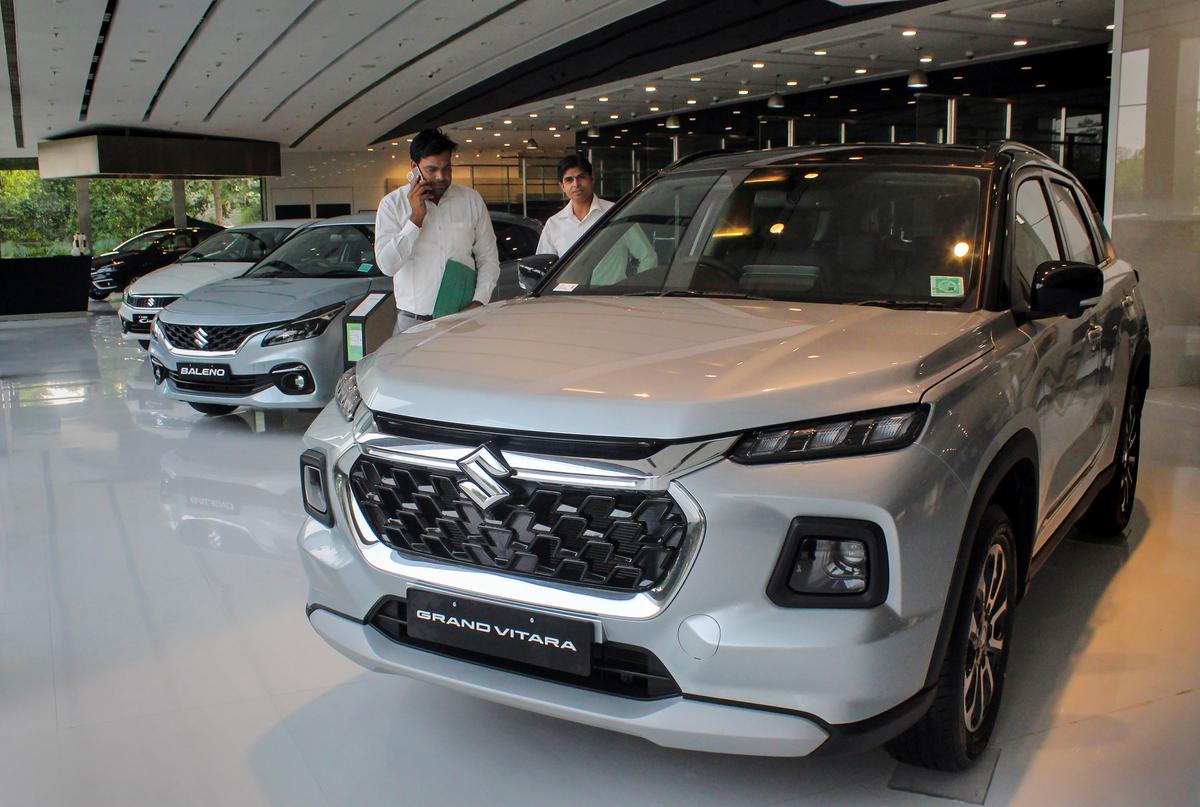Maruti Suzuki to raise vehicle prices from January

Representational photo
| Photo Credit: PTI
Maruti Suzuki India will increase the prices of its vehicles ‘substantially’ from next month as it looks to offset the impact of rising input costs and make provisions to update the model range to conform to stricter emission norms which kick in from April 2023.
In a regulatory filing on Friday, the country’s largest carmaker said it continues to witness increased cost pressure driven by overall inflation and recent regulatory requirements.
While the automaker makes maximum effort to reduce cost and partially offset the increase, it has become imperative to pass on some of the impact through a price increase, it added.
The company has planned the price increase in January 2023 which shall vary across models, the auto major said without disclosing the exact quantum of the increase.
In an interaction with PTI, Shashank Srivastava, Maruti Suzuki India’s senior executive officer – Marketing & Sales, said that commodity prices still remained on the higher side if compared with two years ago.
“Besides there is general inflationary pressure on every input cost whether it is energy or material or manpower cost. Then there is requirement to conform to regulatory requirements,” he said.
The company needs to make models ready for second phase of BS-VI emission norms that kick in from April next year.
“We will have to start making changes in the product range. Also the price increase taken earlier was not sufficient to cover the increase in commodity prices,” Mr. Srivastava noted. Vehicles will need to have an on-board self-diagnostic device to monitor the real time driving emission levels. The device will constantly monitor key parts for meeting emission standards such as the catalytic converter and oxygen sensors, to keep a close watch on emissions.
In a scenario wherein the emissions exceed the parameters, the device will indicate through warning lights that the vehicle be submitted for a service.
Additionally, in order to control the level of fuel burnt, the vehicles will also carry programmed fuel injectors, which would control the timing and amount of fuel injected into the petrol engine.
Even the semiconductors used by the vehicle will have to be upgraded to monitor throttle, crankshaft positions, air intake pressure, temperature of the engine and the contents of the emissions from the exhaust (particulate matter, nitrogen oxide, CO2, Sulphur), etc.
Maruti Suzuki had earlier increased vehicle prices by around 1.3 per cent in April this year. When asked about the quantum of price increase the company planned to take next month, Mr. Srivastava said the company was in the process of finalising it.
“To cover all these factors, the price hike has to be substantial,” he noted.
In a separate filing with the bourses, the company said its production in November rose by 5% to 1,52,786 units as compared with 1,45,560 units in the same month last year. The company rolled out 1,51,326 passenger vehicles last month as against 1,42,025 units in November 2021.
Shares of the company declined 1.58% to close at ₹8,815.10 on the BSE.
For all the latest business News Click Here

